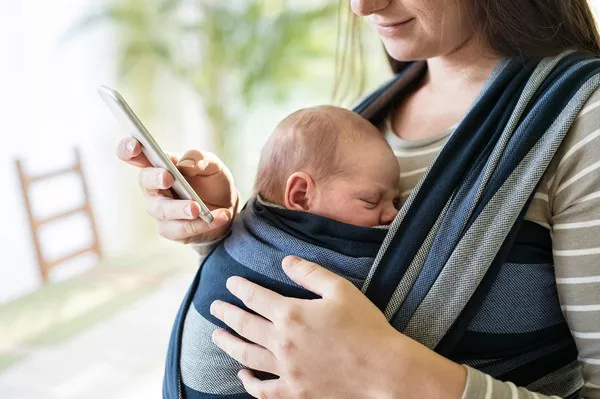Welcoming a newborn into your life is an exciting journey filled with moments of joy and discovery. Along with these moments come some practical questions, such as how many diaper changes a newborn needs each day. Diaper changes are not just about keeping your baby comfortable but also ensuring their health and hygiene.
1. The Early Days:
In the very first days after birth, your newborn’s diaper changes may be less frequent. Here’s what you can expect:
Day 1: On the first day of life, your baby may only have one or two wet diapers. This is because they are still passing meconium, a thick, dark, and sticky substance that was in their intestines during pregnancy.
Day 2: By the second day, your baby should have at least two wet diapers as they start transitioning from meconium to regular stool.
Day 3: On the third day, you should see an increase to at least three wet diapers. This signifies that your baby is getting more milk and staying hydrated.
2. After the First Week:
As your baby grows and their feeding patterns become more established, the number of diaper changes should increase. Here’s what to expect after the first week:
1 Week Old: By the end of the first week, your newborn should have about six or more wet diapers in a 24-hour period. The urine in these diapers should be pale in color, indicating good hydration.
2-3 Weeks Old: Around two to three weeks of age, you can expect approximately six to eight wet diapers per day.
1 Month Old and Beyond: Once your baby is a month old, they should still have about six to eight wet diapers daily. Some babies may have even more.
What About Dirty Diapers?
In addition to wet diapers, you’ll also need to consider dirty diapers. In the early days, as mentioned, your baby will pass meconium. After that, they will have regular stool. The frequency of dirty diapers can vary from several times a day to less often. Newborns tend to have more frequent bowel movements, which can gradually decrease as they get older.
Why It’s Important:
Monitoring diaper changes is crucial because it provides insight into your baby’s health, hydration, and nutrition. An adequate number of wet diapers indicates that your baby is receiving enough milk and staying hydrated. Additionally, changing diapers promptly helps prevent diaper rash and keeps your baby comfortable.
Conclusion:
While these are general guidelines, it’s important to remember that every baby is unique. Some may have more frequent diaper changes, while others may have fewer. The key is to observe a consistent pattern of wet and dirty diapers over time. If you have any concerns about your baby’s diaper changes or overall well-being, don’t hesitate to consult with your pediatrician. Adequate diaper changes are a fundamental part of providing the best care for your precious newborn.
FAQs about how many diaper changes per day newborn
Q1: How many diaper changes should I expect on the first day of my newborn’s life?
A1: On the first day, it’s normal for your newborn to have only one or two wet diapers as they are still passing meconium, a thick, dark, and sticky substance present in their intestines during pregnancy.
Q2: When should I start seeing an increase in the number of wet diapers?
A2: You should start seeing an increase in the number of wet diapers by the third day of your baby’s life. They should have at least three wet diapers by then, indicating they are getting enough milk and staying hydrated.
Q3: How many wet diapers should my newborn have by the end of the first week?
A3: By the end of the first week, your newborn should have about six or more wet diapers in a 24-hour period, with pale-colored urine, signifying good hydration.
Q4: Can the frequency of diaper changes vary between babies?
A4: Yes, every baby is unique. Some may have more frequent diaper changes, while others may have fewer. What’s important is observing a consistent pattern of wet and dirty diapers over time.
Q5: Should I count both wet and dirty diapers when monitoring diaper changes?
A5: Yes, it’s important to count both wet and dirty diapers. While the number of wet diapers indicates hydration, the frequency of dirty diapers provides insight into your baby’s digestive health.
Q6: What if my baby has more or fewer diaper changes than the recommended guidelines?
A6: If your baby consistently has significantly more or fewer diaper changes than expected, it’s a good idea to consult with your pediatrician. They can assess your baby’s individual situation and provide guidance on feeding and hydration.
Q7: Is it normal for my newborn to have frequent bowel movements?
A7: Yes, newborns often have frequent bowel movements, which can vary in frequency and consistency. This is typically due to their developing digestive system adjusting to new feeds.
Q8: How can I prevent diaper rash in my newborn?
A8: To prevent diaper rash, change diapers promptly when they are wet or soiled, use gentle wipes, and apply diaper cream as needed. Keeping your baby clean and dry is essential.
Q9: Should I wake my baby to change their diaper during the night?
A9: It’s generally not necessary to wake your baby for diaper changes during the night unless they have soiled their diaper or if they are particularly sensitive to wetness. Sleep is vital for both you and your baby.
Q10: What if I have concerns about my baby’s diaper changes or overall well-being?
A10: If you have concerns or questions about your baby’s diaper changes or health, don’t hesitate to consult with your pediatrician. They can provide guidance and address specific concerns related to your baby’s unique needs.


